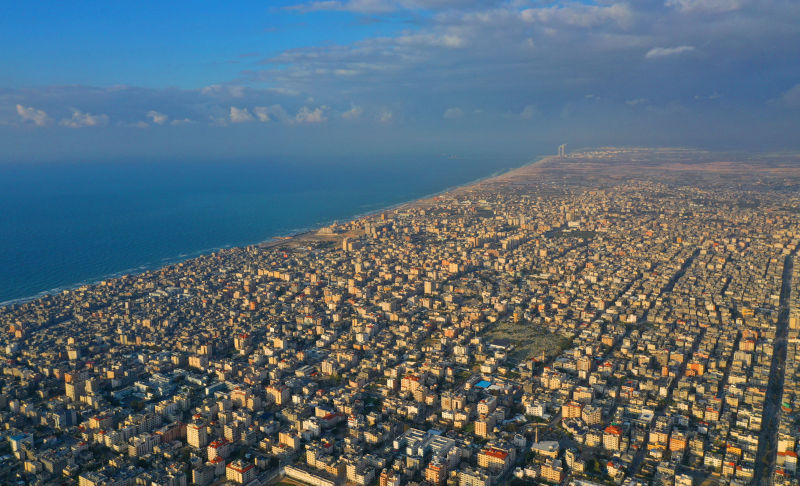One reason Israel is constantly criticised, even from within its obedient posse of Global West backers, is that it has failed to articulate what it has planned for the “day after” the completion of its Gaza-cleansing, genocide project. The respected historian, Adam Tooze, recently revealed that future planning for “Gaza 2035” has, however, been a focus of intense, surreal Israeli attention.
Tooze explains, with the help of some breathtaking Israeli graphics, how this has come to pass in, Chartbook 284 Gaza: “the decade after” the surreal geoeconomic imaginary of Netanyahu’s “economic peace”.
This extraordinary project document, created by the Office of the Israeli Prime Minister, Benjamin Netanyahu, was first circulated in December, 2023 before being made public in May 2024:
“What it envisions is not the kind of the emergency reconstruction prepared by the UN, which right now is focused on a decade-long timeline for clearing unexploded ordinance and 37 million tons of rubble, costed to the tune of $40–50 billion. Netanyahu’s Gaza 2035 is a plan, to complete the erasure of Gaza. In its place the Israeli government envisions a mega-rich, clone of a globalised commercial and industrial city, somewhere between Chicago and Dubai.”
As it happens, Mr Netanyahu has been brutally candid about how Israel must prepare the ground for this lurid, fantastical scheme:
“Gaza 2035 entails ‘rebuilding from nothing’”.
Tooze concludes that:
“In the coming months, as the IDF completes its work of destruction, this is increasingly going to be the question. What to do after this terrible violence? What are the millions of survivors to do? Where and how to make their lives? The grotesquely manicured plans for Gaza 2035 are not an answer to those existential questions. They are a glossy hallucination, which did not even quiet the divided Israeli cabinet for more than a few days. But don’t count them out. They will be back.”
You have to read it to believe it.
Richard Cullen is an Adjunct Professor in the Faculty of Law at the University of Hong Kong. He was previously a Professor in the Department of Business Law and Taxation at Monash University in Melbourne, Australia.

